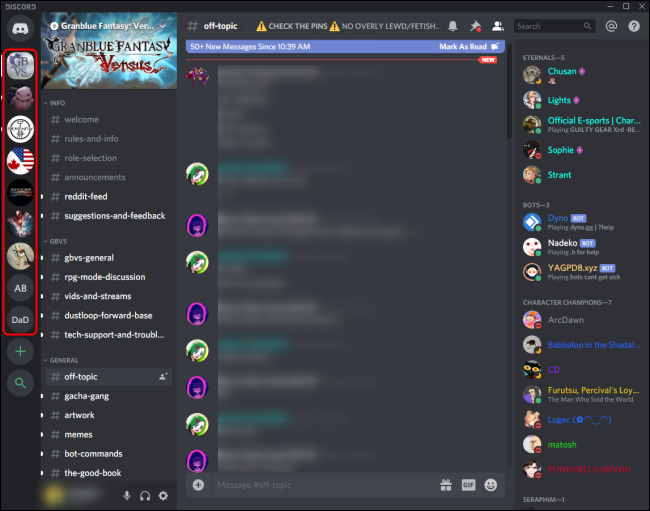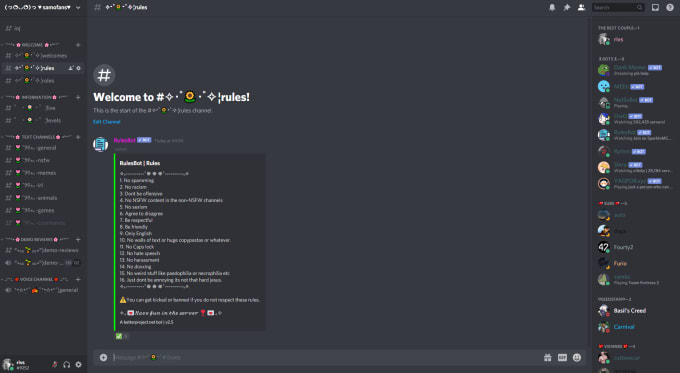Discord is really a text and voice chat program with rapid growth that works well for gaming groups. But it is also a great way for people who don't play games for connecting with others and form communities.
You may build your personal servers using Discord, which you can use to host a range of different events and activities. It's easy to get started with and has many different options that may improve the experience.
Establishing a Server
Anyone who enjoys playing games and interacting with others will love the free voice and text chat app Discord. You may talk about anything, post gifs, share videos and screenshots, and more.
Before you begin building your personal Discord server, consider your community's goals and the kind of experience you would like to offer. Can be your server going to be a destination for recreational players or perhaps a more formalized gaming community?
After making the appropriate choice, you can start creating your Discord server. This stage is easy, and you may either start from scratch or select a ready-to-use template.


You might start sending out invitations to join after you've setup the fundamentals of your Discord server. That is among the finest options for creating a lively and interesting community that may draw more users to your server.
Discord Server List for channels
A chat software called Discord enables users to generate communities around interests like gaming, study sessions, friends, and family. They also get a large amount of independence from it.
Discord automatically generates a generic text and voice channel, but it's imperative to additionally construct channels for your server's users on certain subjects. These could include chats concerning the games, announcements, and server policies.
Putting these channels in categories is the ideal solution to handle them. Discord Server List will locate what they're seeking for more quickly and simply as a result.
You may put in a category by clicking the + sign close to each channel or from the menu on your own server. All the channels under a category will be arranged into that category after it has been established.
Setting up permissions for each channel in the same manner is made simple by syncing channels to categories. When creating Discord Servers or managing permissions on current ones, this can save a ton of time.
Controlling Users
Anyone may use the free text and voice chat app Discord to speak to their friends or form groups. Users may have conversations about a range of subjects, including music, art, and gaming.
By the end of 2020, the platform will have a lot more than 140 million active monthly users (opens in a fresh tab). It also assisted the business in luring a big amount of content producers, including podcasters and YouTubers.
While the app is a fantastic way to communicate, it also has some problems in terms of content moderation. Many discord servers host content that's inappropriate for the Discord platform, including content associated with alt-right or white supremacist movements.
Fortunately that Discord's server could be managed via a variety of tools for controlling user roles and access. In the event that you operate a membership-based company, these tools ensure it is simpler to setup admin and moderator responsibilities and also any unique privileges you provide your members.
Setting Up Permissions
To govern users on the server, Discord provides a permissions system. Using this method, you can build a reliable and secure server.
Different permissions can be found in different forms. They consist of Advanced Permissions, Membership Permissions, Text Channel Permissions, and General Permissions.
Open the server settings on your own Discord server to regulate permissions. Afterward, select Roles from the left sidebar.
Then, you can create new roles and control the corresponding permissions. The permissions of a job may also be altered whenever you want.
Assigning access to the @everyone role on your own server may be the quickest and easiest method of put them up. Once you do this, these permissions will undoubtedly be passed down to all new roles created on your own server.
Apart from using category and channel overrides, you can find other ways to manage permissions. However, these can be tricky to implement.
